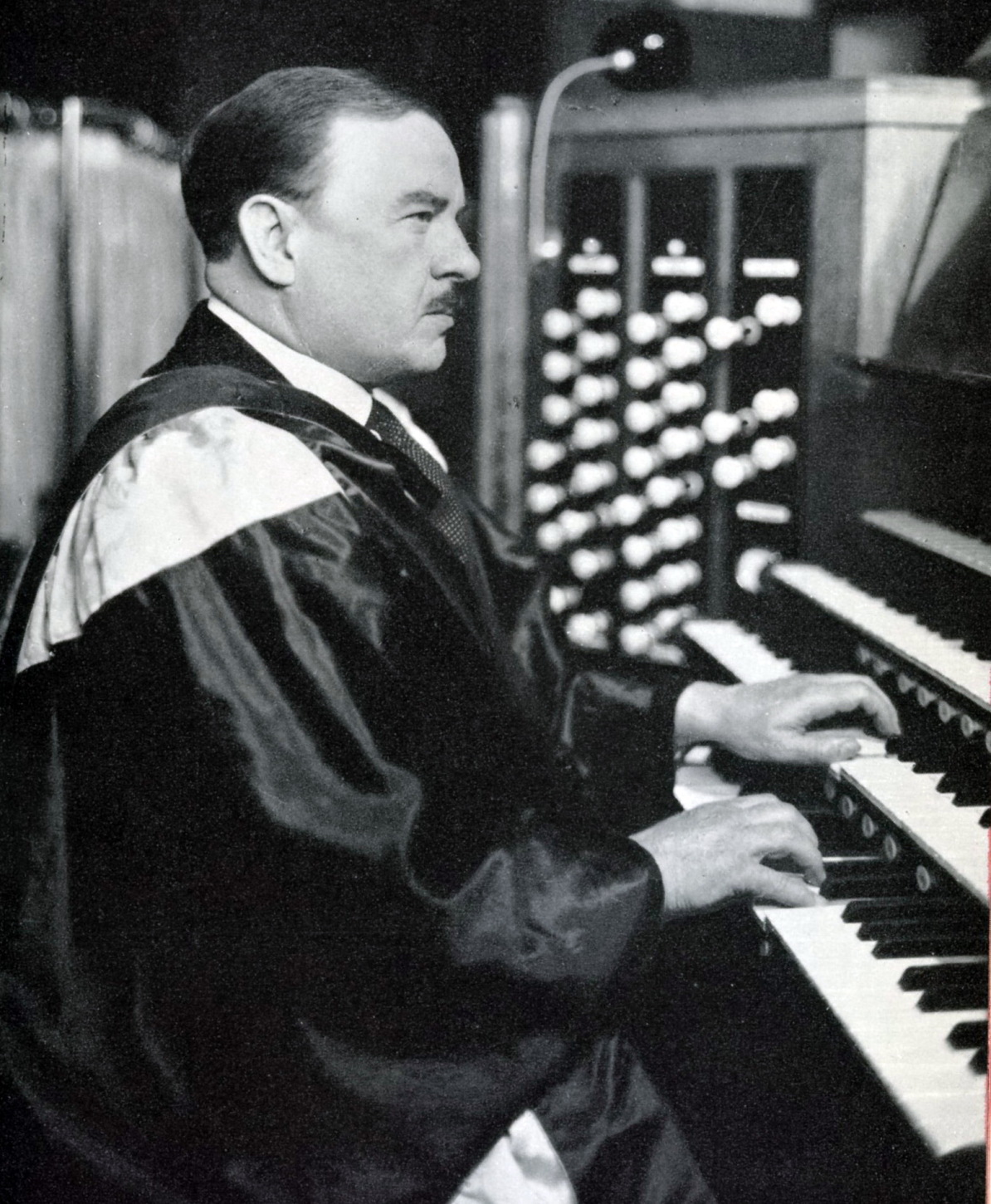
Biography
Sir George Thomas Thalben-Ball CBE (18 June 1896 – 18 January 1987) was an organist and composer who, though originally from Australia, spent almost all his life in Britain.
Born in Sydney, of Cornish parents who brought him back to the UK when he was four years old. He studied organ and piano at the Royal College of Music (RCM) in London, which he entered at the unusually young age of 14. The level of his talent can be gleaned from the fact that he played the solo part in the first performance by an English-trained pianist of Rachmaninoff's famously difficult Piano Concerto No. 3. This event occurred in 1915 at the RCM, when he was aged 19.
Thalben-Ball composed several anthems and organ works, of which the best known is his meditative Elegy for organ. This piece originated in an improvisation which Thalben-Ball played at the end of a live BBC daily religious service during World War II, when the service finished a couple of minutes earlier than expected.
In 1949, he was appointed Birmingham City Organist and Birmingham University Organist, a post he held for three decades. During this tenure, he gave over 1,000 weekly recitals. He wrote in 1972 an organ solo called 'Toccata Beorma' as a celebration of his links with the city. In 1948 Thalben-Ball was elected President of the Royal College of Organists, where in 1915,. at the age of 18, he obtained is FRCO and for many years he taught at the Royal College of Music.
Thalben-Ball was throughout his life an unashamed virtuoso, whether as pianist, as organist, or as choirmaster. His style of performance (like that of his younger contemporary Virgil Fox in the USA) was rooted in the 19th century, and made full use of every facility of the modern organ.
He was appointed a Commander of the Order of the British Empire (CBE) in 1967 and knighted in 1982. The latter honour was conferred shortly after his retirement from Temple Church.
